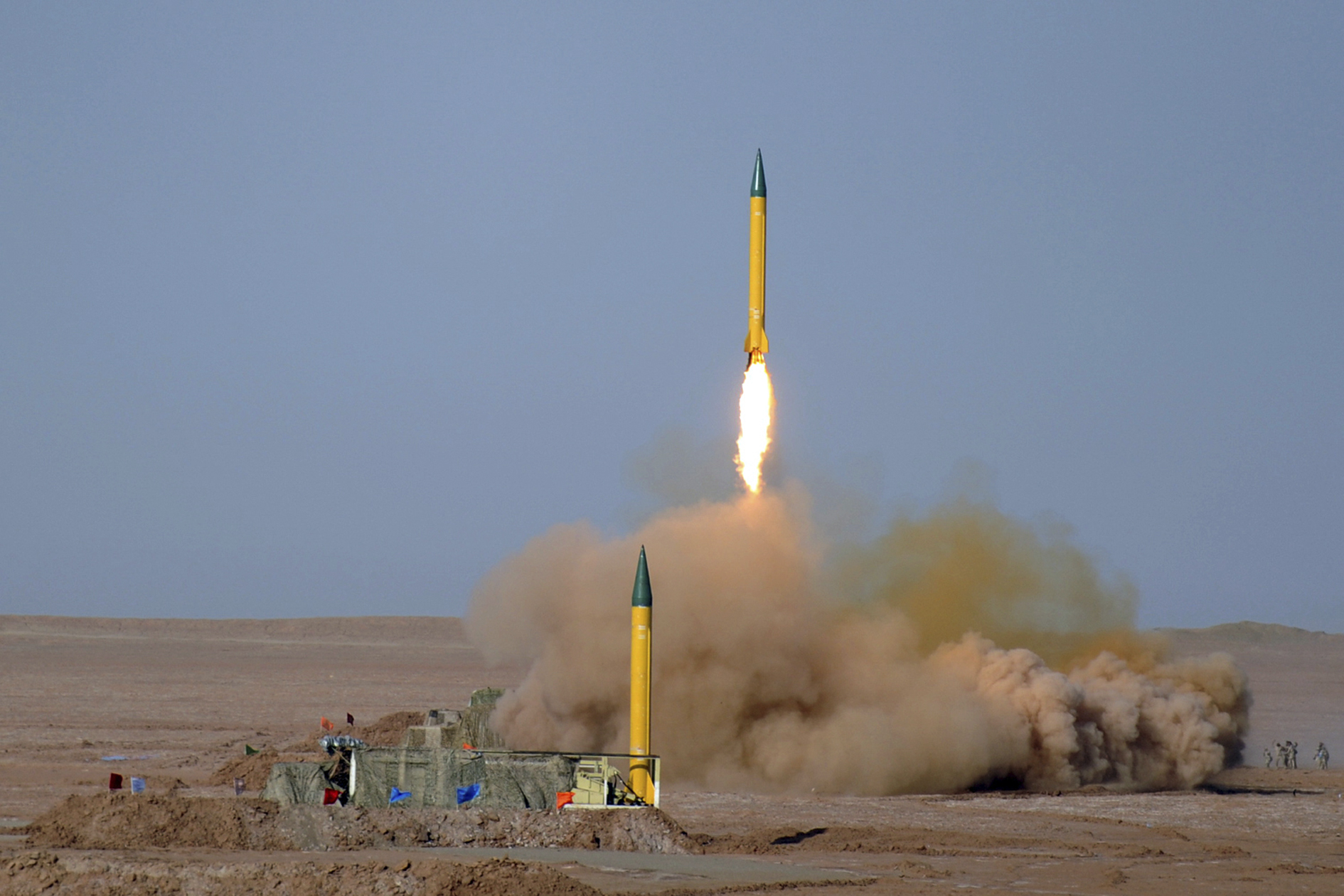
Advertisement
President Donald Trump warned on Wednesday that Iran and its proxies could be looking to conduct a “sneak attack” on U.S. assets in Iraq. The president gave no further details but promised heightened retaliation should such an attack happen.
“Upon information and belief, Iran or its proxies are planning a sneak attack on U.S. troops and/or assets in Iraq,” President Trump said in a post on Twitter. “If this happens, Iran will pay a very heavy price, indeed!”
Upon information and belief, Iran or its proxies are planning a sneak attack on U.S. troops and/or assets in Iraq. If this happens, Iran will pay a very heavy price, indeed!
— Donald J. Trump (@realDonaldTrump) April 1, 2020
The president strongly hinted that he was considering striking Iran if its proxy forces attacked American troops, stating that he had “very good information” that Iran-backed militias were planning more assaults. He noted that the U.S. had retaliated after a strike in March by Kata’ib Hezbollah, an Iraqi militia with ties to Iran and that he would directly attack Iranian forces should a similar attack happen again.
U.S.-Iran relations continue to erode
While the U.S. and Iran have been at odds for decades, the relationship between the two has deteriorated further in the past two years after President Trump abandoned Iran’s 2015 multilateral nuclear deal, reimposing U.S. sanctions on Tehran.
The relationship soured further after Iranian President Hassan Rouhani said on Wednesday that, with the ongoing global coronavirus pandemic, the U.S. has missed a landmark opportunity to lift the sanctions on his country. This, even though the penalties had not hampered Iran’s fight against the outbreak.
“The United States lost the best opportunity to lift sanctions,” Rouhani said in a televised cabinet meeting.” It was a great opportunity for Americans to apologize … and to lift the unjust and unfair sanctions on Iran.”
“Americans could have used this opportunity and told the Iranian nation that they are not against them,” Rouhani continued. “Their hostility [towards Iran] is obvious.”
While Iranian officials have claimed that the U.S. sanctions have hindered its efforts to curb the outbreak, Rouhani had come on record stating that these sanctions “have failed to hamper our efforts to fight” the coronavirus outbreak.
“We are almost self-sufficient in producing all necessary equipment to fight the coronavirus. We have been much more successful than many other countries in the fight against this disease,” Rouhani added.
The U.S. has offered aid, but Tehran has rejected it
Despite the claims that it’s antagonizing Iran, the U.S. has offered to send aid to the country. However, Secretary of Defense Mark T. Esper confirmed that the Iranian government had refused an American offer of medical supplies to help them deal with the pandemic. Instead, Esper accused Tehran of doing little to help its own people fight the outbreak, focusing instead on supporting its proxy forces.
“I feel deep concern for the Iranian people,” Esper said. “The important thing is that the Iranian government should focus on them and stop this malign behavior that they’ve been conducting now for over 40 years.”
Trump’s allies have been pushing for tougher action
Back in March, after a rocket attack by Iran-backed militias on Camp Taji left three Americans dead, White House advisers, including Secretary of State Mike Pompeo, privately pushed for more direct attacks on Iranian forces. Pompeo, along with National Security Advisor Robert C. O’Brien and Acting Director of National Intelligence Richard Grenell, argued that bolder action against Iran could break the current cycle of violence and send them back to the negotiating table.
However, the president resisted the proposal, noting in the discussions with the national security team that attacks on Iran, while the country was reeling from the coronavirus, would appear inappropriate. (Related: How is the Pentagon handling the coronavirus pandemic? (The answer may shock you).)
President Trump held out hope Wednesday that his tougher stance on Iran would restart negotiations. According to the president, Tehran was “dying to make a deal” and that if it gave up its ambitions for nuclear weapons negotiations could be settled quickly.
Some military officers, however, have been more skeptical of a stepped-up campaign against Iran and its proxies. Lt. Gen. Robert P. White, who commands American forces in Iraq, wrote in a memo that a new military campaign against the militias would require the sending of thousands more American troops to the country, diverting resources from their current mission to train Iraq to fight the Islamic state.
Sources include:
Advertisement
Advertisements
















